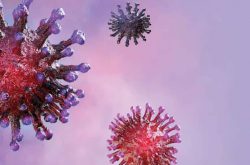
Ramadan runs from around 23 April for 29 or 30 days. This page provides information for people living with diabetes who are thinking about fasting. It gives tips on reducing the risks of becoming ill if you decide to fast and and when it’s advisable not to fast.
Diabetes and Ramadan
Fasting (Sawn or Roza) during the holy month of Ramadan is one of the five pillars of Islam and commemorates the time when the Holy Quran was revealed to Prophet Muhhammad (PBUH). The month-long (29-30 day) fast is obligatory for all healthy Muslims who have reached puberty. Followers must refrain from eating and drinking between dawn and sunset, and must abstain from using oral medications, sexual activity and smoking.
Fasting is mandatory for all Muslim adults, with certain groups exempt, including some people with chronic conditions like diabetes. Despite potentially being exempt, many people with diabetes choose to fast.
Estimates suggest that there are over 150 million Muslims with diabetes worldwide. Therefore, Ramadan has a major impact on the management of diabetes in the Muslim population. Due to the metabolic nature of the condition, people with diabetes are at particular risk of complications from marked changes in food and liquid intake.
Guidelines for people with diabetes
Fasting with diabetes can lead to complications that include:
- Low blood glucose (hypoglycaemia)
- High blood glucose (hyperglycaemia)
- Dehydration
- Diabetic ketoacidosis (DKA), in people with type 1 diabetes
It is therefore important that the decision about whether to fast is made on an inpidual basis in consultation with a healthcare provider, taking into account the severity of illness and the level of risk involved.
Tips for a healthy Ramadan with diabetes
Know your risk before you decide to fast
As per the Holy Quran, there are groups of people who might make themselves ill by fasting. Based on medical and religious advice, it is recommended to visit your doctor 6-8 weeks before Ramadan to understand your risk category before deciding to fast. If your doctor advises not to fast, you will get the same Thawab (reward).
Check your blood glucose regularly
Blood glucose monitoring and insulin injections do not break the fast and are important. They are your window to know your blood glucose levels and manage your diabetes. Changes in eating habits during Ramadan may affect your blood glucose and therefore it is important check blood glucose levels regularly.
- People at very high risk (even if not fasting) should check blood glucose levels 3-4 times a day
- People at moderate or low risk should check blood glucose levels 1-2 times a day
Medication adjustments during fasting
Talk to your doctor about the adjustments required to the dose, timing or type of medication to reduce the risk of low blood sugar.
It is important to know that measuring your blood glucose and injecting insulin will not break your fast.
When to break the fast?
All people with diabetes should break the fast if:
- Blood glucose is lower than 70 mg/dl (3.9 m mol/L). Re-check within one hour if blood glucose is in the range 70-90 mg/dl (50- 3.9 m mol/L)
- Blood glucose is higher than 300 mg/dl (16.6 m mol/L)*
- Symptoms of hypoglycemia, hyperglycemia, dehydration or acute illness occur
Exercising during Ramadan
Perform regular light-to moderate exercise. Rigorous exercise is not recommended during fasting because of the increased risk of low blood glucose and/or dehydration. Physical exertions involved in Tarawih prayers, such as bowing, kneeling and rising, should be considered part of your daily exercise activities.
When the month of Ramadan ends
Avoid over-eating (especially sweets) during Eid-ul-Fitr, as it may lead to high blood glucose. Visit your doctor to obtain guidance on changing the medication back to the previous schedule.
Dietary advice for people with diabetes during fasting
| Snacks | pide daily calories between Suhoor and Iftar, plus 1-2 snacks if necessary | |
| Carbohydrates | Ensure meals are well balanced: 45-50% carbohydrate 20-30% protein <35% fat | |
| Vegetables | Include plenty of fruit, vegetables and salads | |
| Saturated fat | Minimise foods that are high in saturated fats (ghee, samosas, pakoras) | |
| Oil | Use small amounts of oil when cooking (olive, rapeseed) | |
| Drinks | Stay hydrated at or between the two main meals by drinking water or other non-sweetened beverages. Avoid caffeinated, sweetened drinks and sugary desserts | |
| Bread | Include low glycaemic index, high fibre foods that release energy slowly before and after fasting (granary bread, beans, rice) |
COVID-19 and fasting with diabetes
The currently available epidemiological data shows that people who fast do not report higher rates of infections or hospitalization. There is therefore no evidence that fasting could lead to reduced immunity and higher risk for infection.
However, people with diabetes and complications, such as renal impairment or foot problems, are at high risker of infections. It is therefore important that they follow medical advice and do not fast to avoid increasing their risk of contracting COVID-19.
Source: IDF

